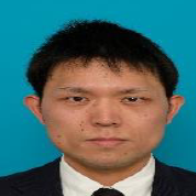
Hiroyuki Endo
Work place: Department of Human Education, Naruto University of Education, Tokushima, Japan
E-mail: endo.hiroyuki88@gmail.com
Website: https://orcid.org/0009-0000-3362-0394
Research Interests:
Biography
Hiroyuki Endo, Master, completed his Bachelor's degree in English language and literature at Senshu University, Kanagawa, Japan. He started to work as an English teacher at a secondary school in Ibaraki in Japan. He joined the Japanese volunteer program of Japan International Cooperation Agency (JICA). As a volunteer, he facilitated and promoted sports and cultural activities for children and adolescents in the Community Development Center in Djibouti. He began to work as a teacher in a primary school in Ibaraki in Japan. In total, he has over 10-year experience as a teacher. He received Master’s degree in Education from Naruto University of Education in Japan. His current job is consultant for Grant Assistance for Grassroots Human Security Projects (GGP) in the Japanese Embassy in Kinshasa, the Democratic Republic of the Congo. His research interest includes Computational Thinking, Mathematics Education, Primary School Education.
Author Articles
Assessing Algorithmic Literacy through Scratch Programming: A Comparative Study in Japanese and Indonesian STEM Education
By Hiroyuki Endo Satoshi Kusaka Rully Charitas Indra Prahmana Nur Robiah Nofikusumawati Peni
DOI: https://doi.org/10.5815/ijeme.2025.05.01, Pub. Date: 8 Oct. 2025
Despite the growing integration of programming education within STEM curricula worldwide, there remains a significant gap in the availability of comprehensive and empirically validated assessment tools, particularly those capable of evaluating students’ broader computational thinking competencies. Addressing this gap, this study introduces a novel rubric grounded in the framework of algorithmic literacy—defined by Kalaš (2011) as a set of skills that enable individuals to manage behavior and attain goals within dynamic, interactive environments. The rubric, comprising four key dimensions—Subject Knowledge, Programming Design, Programming Techniques, and the Learning Process—was developed to assess students’ algorithmic literacy in the context of Scratch-based STEM learning activities. The study was guided by two primary research questions: ⑴ To what extent can the developed rubric effectively assess students' algorithmic literacy in Scratch-based STEM education? and ⑵ What similarities and differences exist between Japanese and Indonesian students in their programming outcomes, and what contextual factors contribute to these patterns? A total of 228 students—132 from Japan and 96 from Indonesia—participated in three intervention lessons focused on programming regular polygons using Scratch. Evaluation of their work revealed high proficiency in Programming Techniques, particularly in utilizing sequential commands and loops, while students exhibited difficulties in integrating complex mathematical concepts and multi-shape design tasks. Comparative analysis highlighted the influence of curriculum structure, access to technological resources, and pedagogical approaches on student performance across the two contexts. The findings contribute a validated and practical tool for assessing algorithmic literacy, offering critical insights to inform the design of culturally responsive and pedagogically effective programming education initiatives.
[...] Read more.Other Articles
Subscribe to receive issue release notifications and newsletters from MECS Press journals